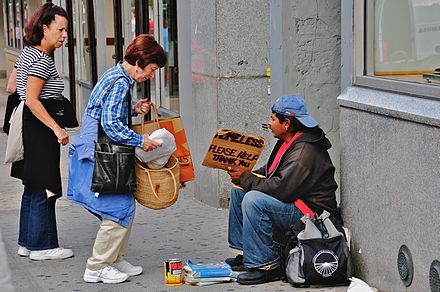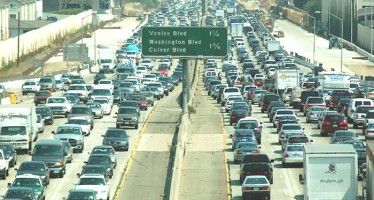Los Angeles, San Francisco homeless woes worsen despite funding boosts
 The homelessness problem has gotten steadily worse over the past two years in both Los Angeles and San Francisco – even as local officials devote more resources than ever to an issue they say is their highest priority.
The homelessness problem has gotten steadily worse over the past two years in both Los Angeles and San Francisco – even as local officials devote more resources than ever to an issue they say is their highest priority.
Both cities cite the same reasons they are epicenters for homelessness: mild climates and extremely expensive housing. But knowing what’s driving the problem isn’t the same as having an answer for it.
In Los Angeles, Mayor Eric Garcetti and City Council leaders in 2015 declared a “state of emergency” over the homeless crisis and announced $100 million in funding for homelessness relief in 2015-16, a big increase over previous years. In 2016, city voters followed up by approving a $1.2 billion bond to ramp up plans to build housing for the homeless, and in fiscal 2016-17, homeless funding went up to $138 million.
But since the emergency declaration, the average number of those homeless on a given night according to city tracking has gone up by nearly two-thirds. In 2015, the average number was 21,338. In 2016, it was 28,464. In 2017, with half the year still to go, the number has grown by 18 percent to 34,189.
Not only are efforts to get more homeless into shelters failing, a Friday report in the Los Angeles Times concluded that a $14 million program to clean up homeless encampments was ineffective because as soon as one camp area was closed and cleaned, another popped up nearby.
City officials argued they were making progress in addressing an immense problem. Residents weren’t buying it.
“[Work crews] clean up and they come right back. It’s just a never-ending cycle,” a North Hills hair salon owner told the Times. “You’d think they would come and find a place for them, but they don’t. They just tell them to move.”
Heavy spending producing weak results
In San Francisco, residents – and elected officials – face even worse frustrations. The city spends far more than Los Angeles to deal with a smaller number of homeless people, without the gains one might expect.
In 2015, Mayor Ed Lee was re-elected to a second four-year term after a campaign in which he promised to tackle what was unanimously seen as a humanitarian and civic crisis. But eight months later, the San Francisco Chronicle ran a rare front-page editorial declaring city efforts to have failed.
The number of homeless people on an average night was estimated at about 7,500 in January 2015. By late 2016, city officials’ estimate had jumped to about 10,000, with some homeless advocates saying the number was closer to 12,000. Different counts have different methodologies, leading to disputes over whether the problem is significantly worse than it used to be. But the Chronicle’s front-page editorial came down squarely on the side of those who argue some official counts are much too low.
Meanwhile, as in Los Angeles, attempts to clear homeless encampments that San Francisco voters had blessed by approving a measure prohibiting tents on public sidewalks in November 2016 were depicted by news coverage as more symbolic than substantive. Mayor Lee agreed with the assessment.
City spending on homelessness has gone from $241 million in fiscal 2015-16 to $275 million in 2016-17 to $305 million in the fiscal year that began Saturday. In May, a local nonprofit group also promised to provide a $100 million grant to tackle homeless.
But this may not affect the problem except on the margins. Local governments have long noticed that a relative handful of homeless people – those with serious mental illness – consume a disproportionate share of homeless funding with constant trips to emergency rooms and confrontations with police and residents. In San Francisco, this category of homeless people makes up 3 percent of total homeless but uses one-third of resources. A June 2016 Chronicle story suggested the tab for this group alone could eat up far more than one-third of all funds if its severe problems were addressed with the comprehensive approach that advocates want.
That would leave little to go around for the most common category of homeless person – those who lost shelter after losing a job or after a rent increase or a life emergency such as heavy medical bills.
Chris Reed
Chris Reed is a regular contributor to Cal Watchdog. Reed is an editorial writer for U-T San Diego. Before joining the U-T in July 2005, he was the opinion-page columns editor and wrote the featured weekly Unspin column for The Orange County Register. Reed was on the national board of the Association of Opinion Page Editors from 2003-2005. From 2000 to 2005, Reed made more than 100 appearances as a featured news analyst on Los Angeles-area National Public Radio affiliate KPCC-FM. From 1990 to 1998, Reed was an editor, metro columnist and film critic at the Inland Valley Daily Bulletin in Ontario. Reed has a political science degree from the University of Hawaii (Hilo campus), where he edited the student newspaper, the Vulcan News, his senior year. He is on Twitter: @chrisreed99.
Related Articles
Carpooling and mass transit decline; number of solo commuters on the rise
If you drive to work alone then you are not, well — alone — in a manner of speaking. It seems
Free Barry Bonds!
John Seiler: The Feds have dropped six felony counts against former San Francisco Giants slugger Barry Bonds, baseball’s all-time home-run
Leg Wants to Regulate Cough Syrup
Ali Meyer: It’s Lil Wayne’s drug of choice. Kids call it robo-tripping. Cough syrup isn’t just for colds anymore. State



